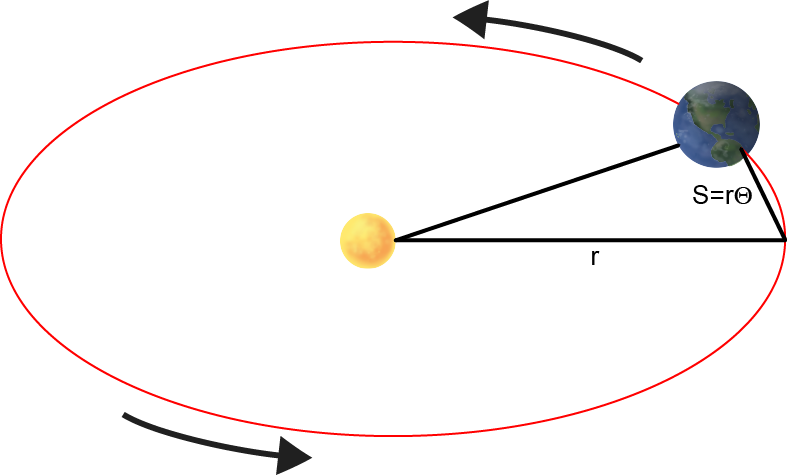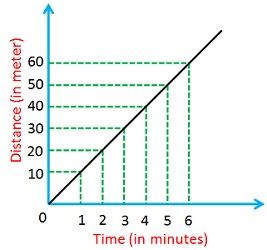Speed is defined as the distance moved per unit time
speed=distance/time
Motion can be classified as
a) Uniform motion: When equal distance is covered in equal interval of time, the motion is said to be in uniform motion. The bodies moving with constant speed or velocity have uniform motion or increase at the uniform rate.
dv/dt=c
or acceleration=0
b) Non Uniform motion: When unequal distances are covered in equal interval of time, the motion is said to be in non uniform motion. The bodies executing non uniform motion have varying speed or velocity.
We can even classify the non uniforn motion into three types:
In Translatory motion, the particle moves from one point in space to another. This motion may be along a straight line or along a curved path.

They can be classified as

In Vibratory motion, the particles move to and fro about a fixed point.
speed=distance/time
Motion can be classified as
- Uniform motion
- Non uniform motion
a) Uniform motion: When equal distance is covered in equal interval of time, the motion is said to be in uniform motion. The bodies moving with constant speed or velocity have uniform motion or increase at the uniform rate.
dv/dt=c
or acceleration=0
 |
| distance time graph |
b) Non Uniform motion: When unequal distances are covered in equal interval of time, the motion is said to be in non uniform motion. The bodies executing non uniform motion have varying speed or velocity.
 |
| distance time graph |
We can even classify the non uniforn motion into three types:
- Translatory motion
- Rotatory motion
- Vibratory motion
Translatory Motion-
In Translatory motion, the particle moves from one point in space to another. This motion may be along a straight line or along a curved path.

They can be classified as
Rectilinear Motion: Motion along a straight line is called rectilinear motion.
Curvilinear Motion: Motion along a curved path is called curvilinear motion.
In Rotatory motion, the particles of the body describe concentric circles about the axis of motion.
Rotatory Motion-
In Rotatory motion, the particles of the body describe concentric circles about the axis of motion.

Vibratory Motion
In Vibratory motion, the particles move to and fro about a fixed point.
Average velocity-
The average velocity of an object is its total displacement divided by the total time taken. In other words, it is the rate at which an object changes its position from one place to another. Average velocity is a Vector quantity.
SI unit=m/s
Average Speed and Average Velocity:
- The average speed of an object is the distance traveled divided by the time elapsed.average velocity can be defined as the displacement divided by the time
- Speed is a Scalar quantity whereas velocity is a Vector quantity.
- In effect, it means that speed does not require a direction but velocity needs direction.
Average velocity and average speed
Average velocity and average speed are different qu
antities
and defined differently. Average velocity is a vect
or quantity
while average speed is a scalar.
Average velocity and average speed
Average velocity and average speed are different qu
antities
and defined differently. Average velocity is a vect
or quantity
while average speed is a scalar.
Average velocity and average speed
Average velocity and average speed are different qu
antities
and defined differently. Average velocity is a vect
or quantity
while average speed is a scalar.



0 Comments